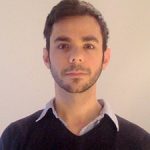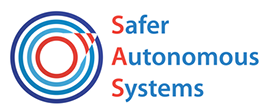The 5th Network Wide Event (NWE) of the European Union MSCA Horizon 2020 project on Safer Autonomous Systems (SAS) took place from 7th of December to the 10th of December 2021. Due to the current health situation across Europe, it was preferred to hold the SAS Network Wide Event remotely. Despite the virtual setting, this event was a great success. Each ESR was able to exchange with his peers and supervisors as well as present his or her progress and attend useful technical and soft skills trainings. This blog highlights the week’s main events and milestones.

Tuesday, the 7th of December 2021
The 5th Network Wide Event kicked off on the 7th of December 2021 with the SAS project coordinator, Professor Davy Pissoort, providing a welcome to all ESRs, supervisors and consortium members. The coordinator briefly presented the program of the week and overall topics that would be dealt with and also gave an overview of the progress of the SAS project. This presentation was then followed by the ESRs individual presentations where ESRs 1 to 3 were able to present their findings for 30 minutes. Each presentation was followed by a Q&A session. This morning session was then followed by the ESR Council in which all the ESRs discussed different matters such as the effect of the pandemic on their individual research projects, possible collaboration between the various ESRs, etc. The day continued with ESRs 5, 6 and 8 presentations and finished in the evening with a social event organized by the ESRs. This was an online mystery game where the ESRs were divided into two teams and had to solve a death.
Wednesday, the 8th of December 2021
The second day of the Network Wide Event was also dedicated to the ESR’s individual presentations. In the morning, ESRs 9, 10 and 12 were able to present their research progress as well as answer questions from the audience. The morning session was then followed by the Work Package parallel sessions where each ESR joined a breakout session chaired by one of the Work Package supervisors. These sessions enabled the researchers to present any outstanding topic with regards to their research project (deliverables, milestones, secondments, etc.). The work package supervisor then presented the result of the discussion in the plenary session as to further align with the other groups. In the afternoon, ESRs 13, 14 and 15 presented their research output.
All the ESR presentations were extremely insightful and the ensuring discussions with the SAS consortium experts provided valuable feedback to each ESR in their respective research areas.
The day ended with another social event organized by ESRs.

Thursday, the 9th of December 2021
The 3rd day of NWE started with a very interesting technical presentation given by Tim Edwards from Horiba Mira and which dealt with the “verification and validation strategies for automated vehicles”. This presentation gave a very insightful overview of the challenges and strategies in providing adequate V&V for automated vehicles. This presentation was then followed by a useful soft skill training given by Paul McGuiness and which dealt with key aspects of preparing a successful postdoctoral MSCA fellowship proposal or ERC starter grants. A final interesting soft skill training was given by KU Leuven’s Stefan Wellens and provided useful insights on the ESRs qualities and ambitions.
The day ended by one final social activity organized by ESRs.
Friday, the 10th of December 2021

The last day of the 5th Network Wide Event was dedicated to one final technical presentation as well as a wrap up session. Dr. David Ward from Horiba Mira gave a very interesting presentation titled “Dependability of Cyber-Physical Vehicle Systems”. He explored some of the key concepts of dependability in the field of cyber-physical systems. This presentation was then followed by a wrap up session conducted by the project manager, Stephane Stroobant and Dries Vanoost, where important project related topics were discussed. These included secondments, blogs and other topics.
This Network Wide Event was a great opportunity for ESRs, supervisors, consortium members and project leaders to exchange and discuss the project. Despite the virtual setting, the ESRs were able to interact socially with other ESRs and benefited from the various scientific and soft-skill trainings.
About the Author: Orian Dheu

Orian studied his bachelor’s degree at Paris 1 Panthéon-Sorbonne University and then graduated with a Master’s degree in Air Law and Management from Aix-Marseille University in France. After university, he worked for almost three years at the French Civil Aviation Administration in Paris where he was in charge of studying different regulatory and legal issues in general aviation. Orian’s main areas of interest are Air Law, Transportation Law, and ICT Law.


